Common houseplant pests – and 6 natural ways to get rid of them for good
Experts explain how to get rid of common houseplant pests in six easy, natural steps
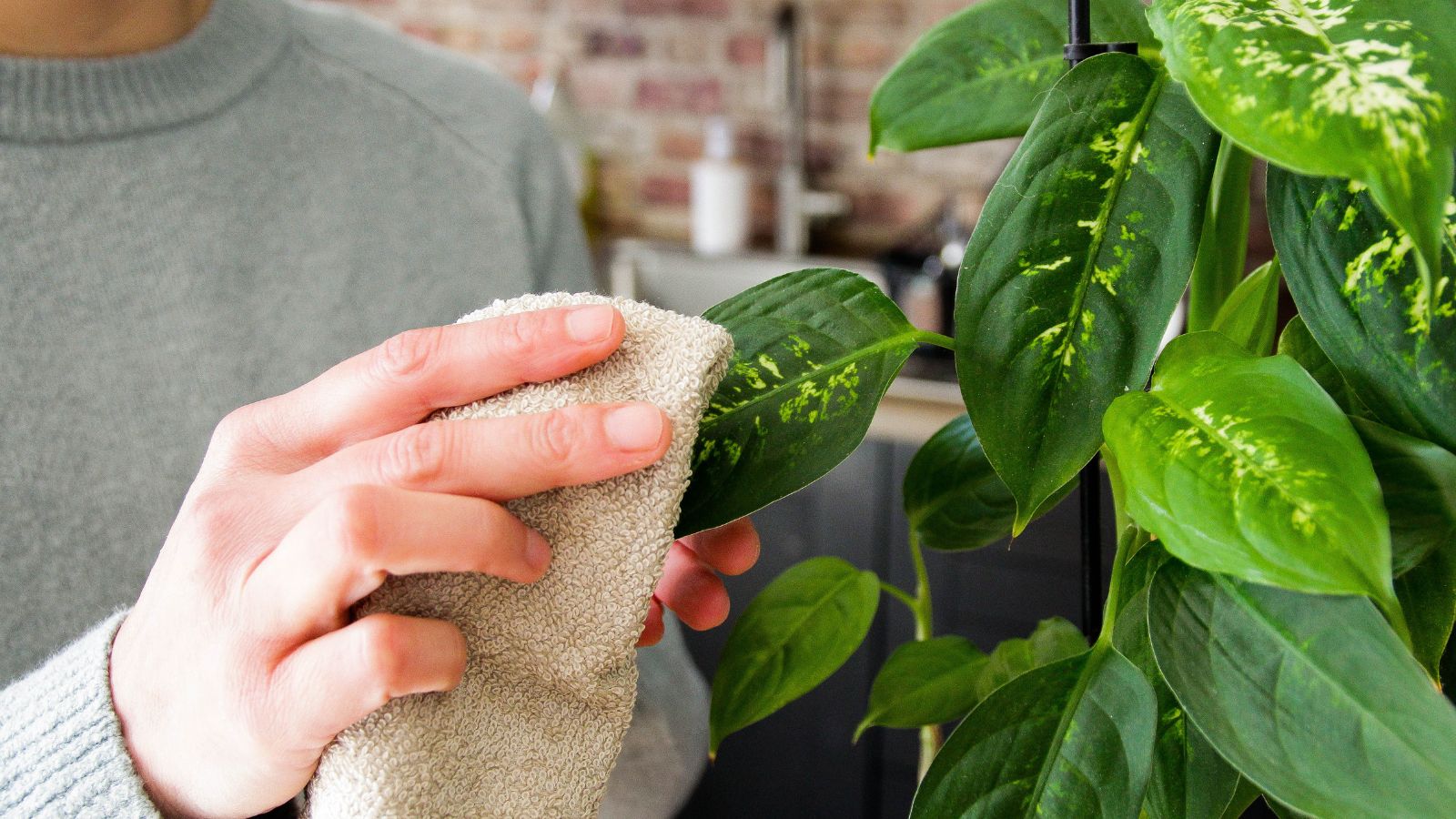

Houseplant pest infestations become more common as we approach summertime.
Several common houseplant pests can infest indoor plants – including mealybugs, spider mites, fungus gnats, aphids, whiteflies, and scale, amongst others. Most common pests can be troublesome to remove as they multiply quickly and move between plants in your collection.
'Pests are as common a problem for indoor plants as they are for outdoor plants' explains indoor plant expert Kate Lindley from Baby Bio. 'In fact, houseplants can be even more susceptible to infestations for a variety of reasons, from changes in the environment to overwatering.'
Common houseplant pests – how to prevent pest infestations
There are several different types of houseplant pests and learning how to prevent them can save you time in the long run, especially as decorating with plants becomes more popular.
It is good practice to regularly check your houseplants for pests, especially in the spring and summer months when you may be opening your windows more. Even low-maintenance houseplants need checking over occasionally. Each time you water your plants, get into the habit of checking over the leaves, stems, and soil for anything unusual.
Try to avoid overwatering your plants and leaving damp layers of topsoil as pests are attracted to the decaying plant material that settles there. Indeed getting rid of gnats in plants is something you'll no doubt need to tackle if you have been overwatering your plants. Decorating your plants with a layer of decorative gravel or stones as well as regularly pruning dead leaves can all help towards preventing infestation in the first place.
Other ways to prevent infestations is considering adding companion plants such as fly repellent plants or making your own homemade bug spray.
If prevention hasn’t worked, here are six natural ways to remove pests from your houseplants.
1. Isolate affected houseplants
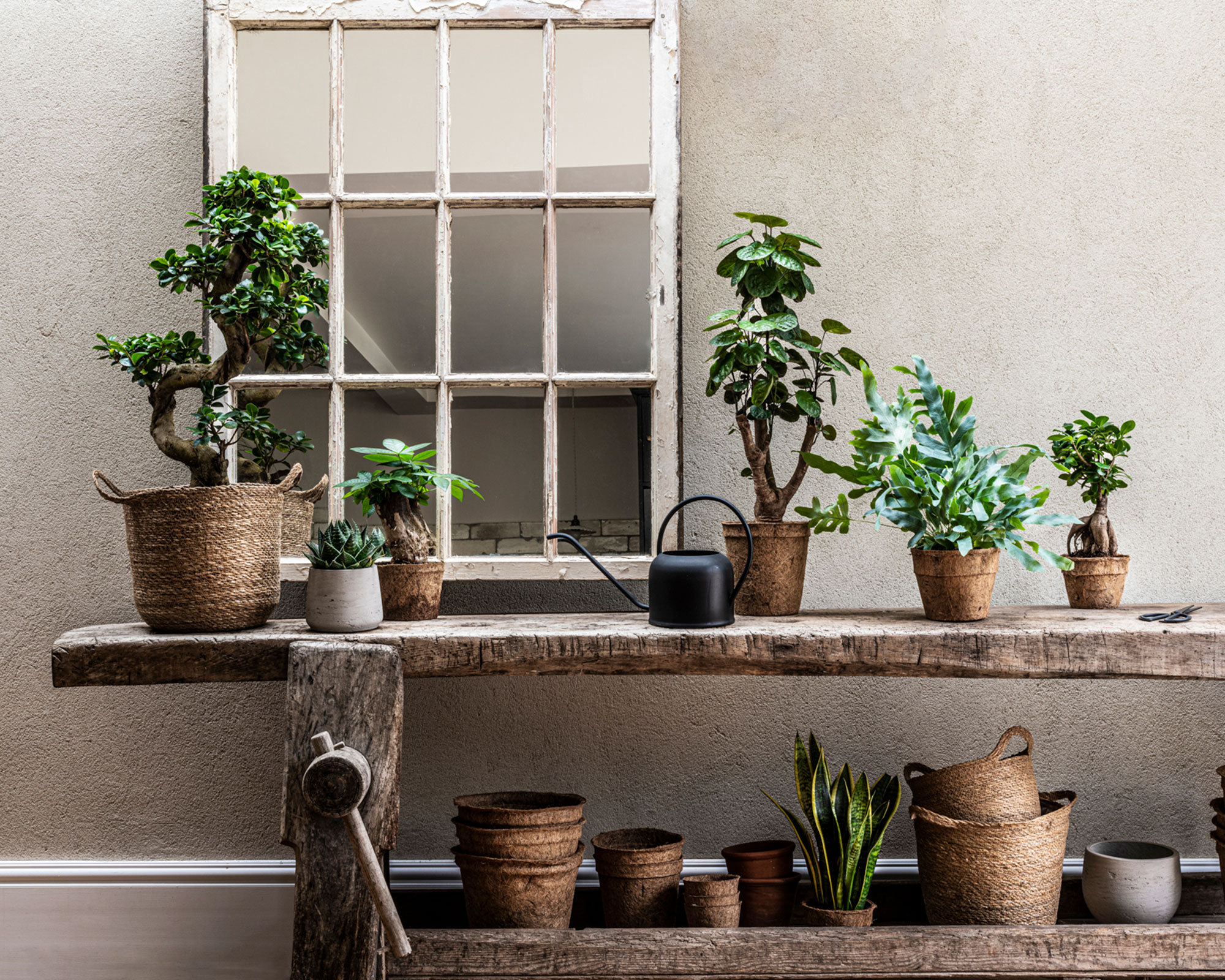
Isolating infected houseplants can prevent the spread of common houseplant pests to your other plants. Try moving the plants to another room or, where possible, move them outside until the infestation has cleared.
Taking your houseplants out into the sun can also be beneficial for drying out the soil. 'Pests like gnats thrive in moist houseplant soil,' explains Rachel Crow, garden editor for Homes & Gardens, 'pests like these can be combated by ensuring the top couple of inches of soil completely dry out.'
Make sure to continue to check other houseplants for pests for three to four weeks after the initial infestation is found.
2. Thoroughly clean the area you keep your plants
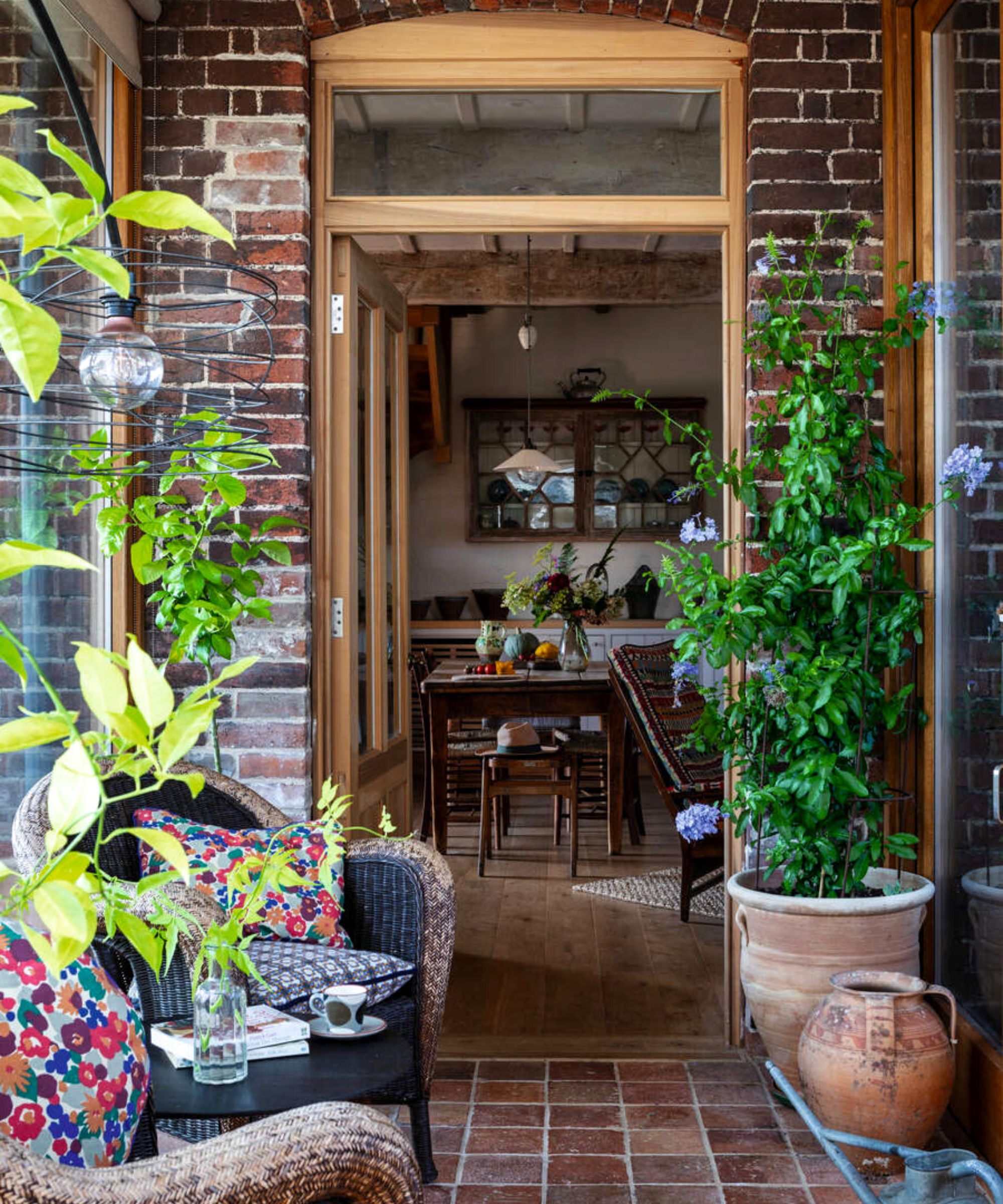
Thoroughly clean the area you keep your plants with warm soapy water. It is good practice to also wipe the area with alcohol to remove any stubborn infections and vacuum the area to remove any already dead pests
'If you are faced with a serious infestation, consider repotting the plant into fresh soil to remove any unhatched eggs and prevent the pests from relaying' adds Katie.
3. Use natural soaps to disinfect your plants
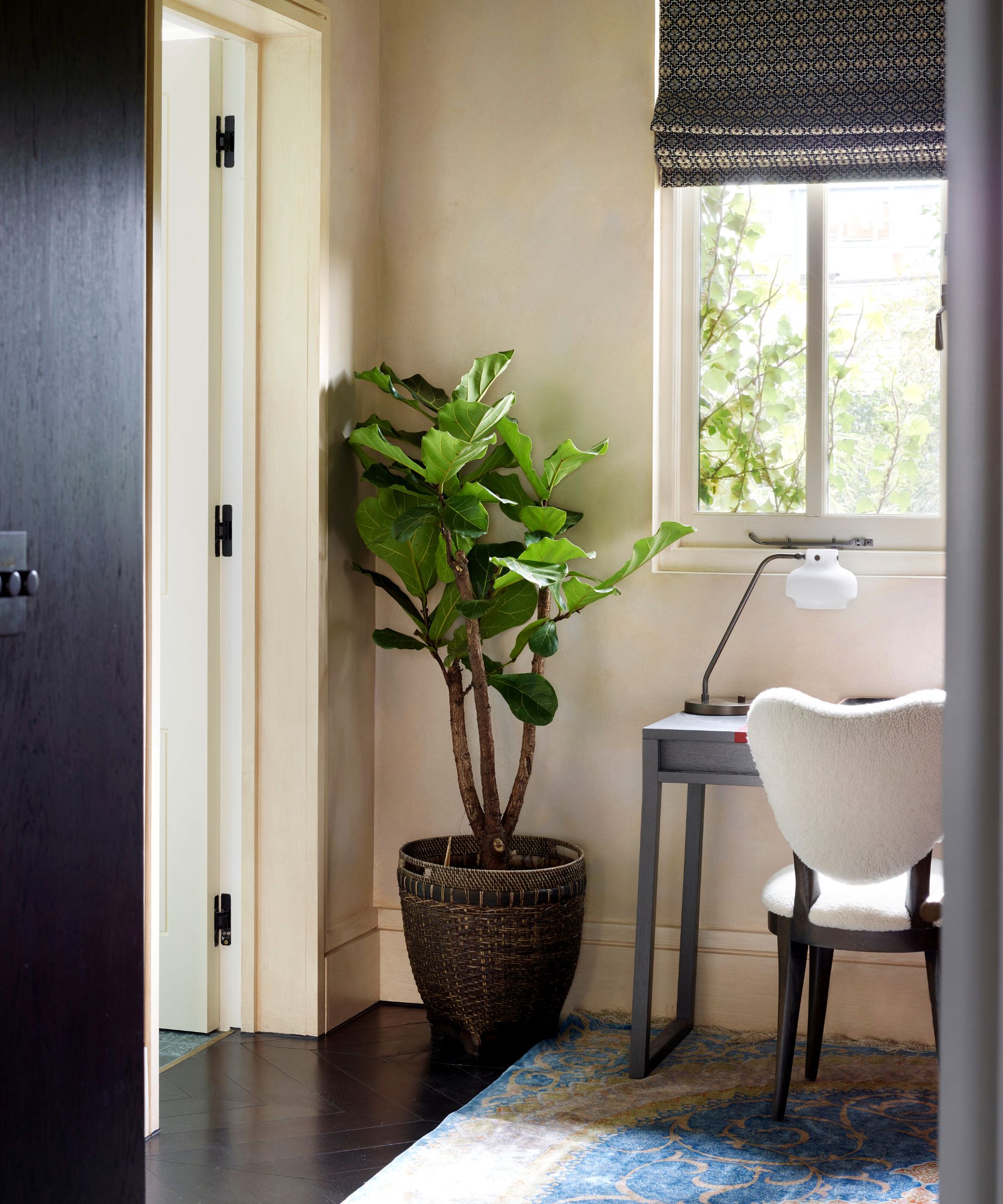
Washing the plant itself may be a time-consuming process for larger houseplants but is required to remove common houseplant pests.
Natural soaps like specialized insecticidal soaps or even a mild household liquid soap can kill houseplant pests on contact. 'Sticking with natural methods is best when it comes to pesticides,' says the team at Essential Living, 'and there are many all-natural home remedies that work perfectly well for controlling houseplant pests.'
Certain harsh degreasers and detergents can damage sensitive plants so be careful which type you choose. If in doubt, remove a leaf and dab some soap on before using it on the whole plant to spot-check for any negative effects.
4. Use rubbing alcohol to kill any remaining bugs
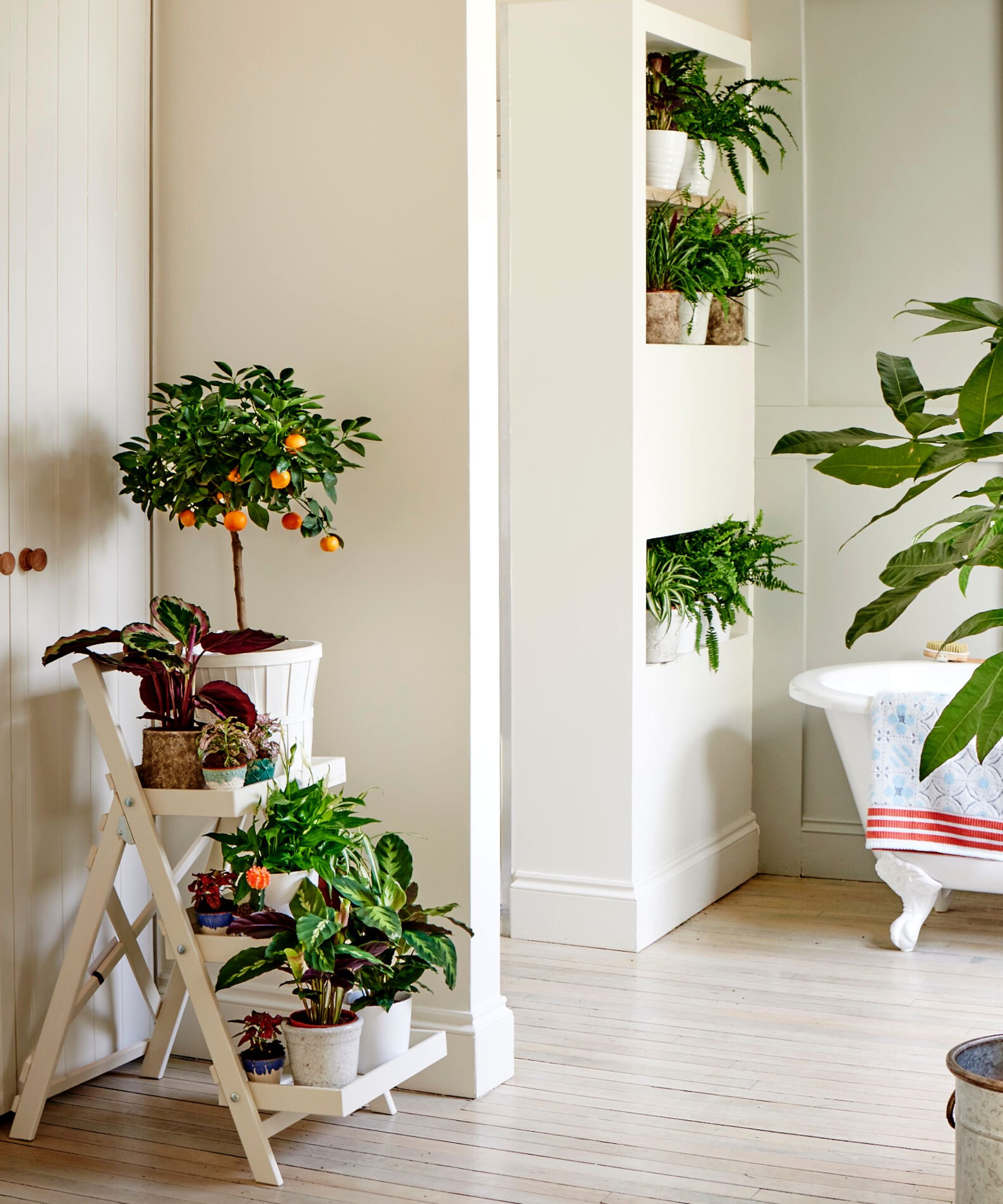
Soak a cotton swab in diluted rubbing alcohol and dab it on any areas that have visible pests to remove them from the plant and kill them instantly. Aim to use a solution of around one part alcohol to seven parts water to ensure you don't damage your plant further.
Rachel warns against using alcohol on plants whilst they are in direct sunlight, however, 'alcohol can burn your houseplant's leaves, especially in bright light. To prevent leaving scarring on your plants, make sure to rinse each leaf thoroughly afterward.'
It is also good practice to wipe and rinse the plant pot and tray with alcohol and water to remove stubborn pests that may be hiding under the rim.
You may also want to try using a hydrogen peroxide solution. this can also work for getting rid of bugs from houseplant soil.
5. Use long-term pest control
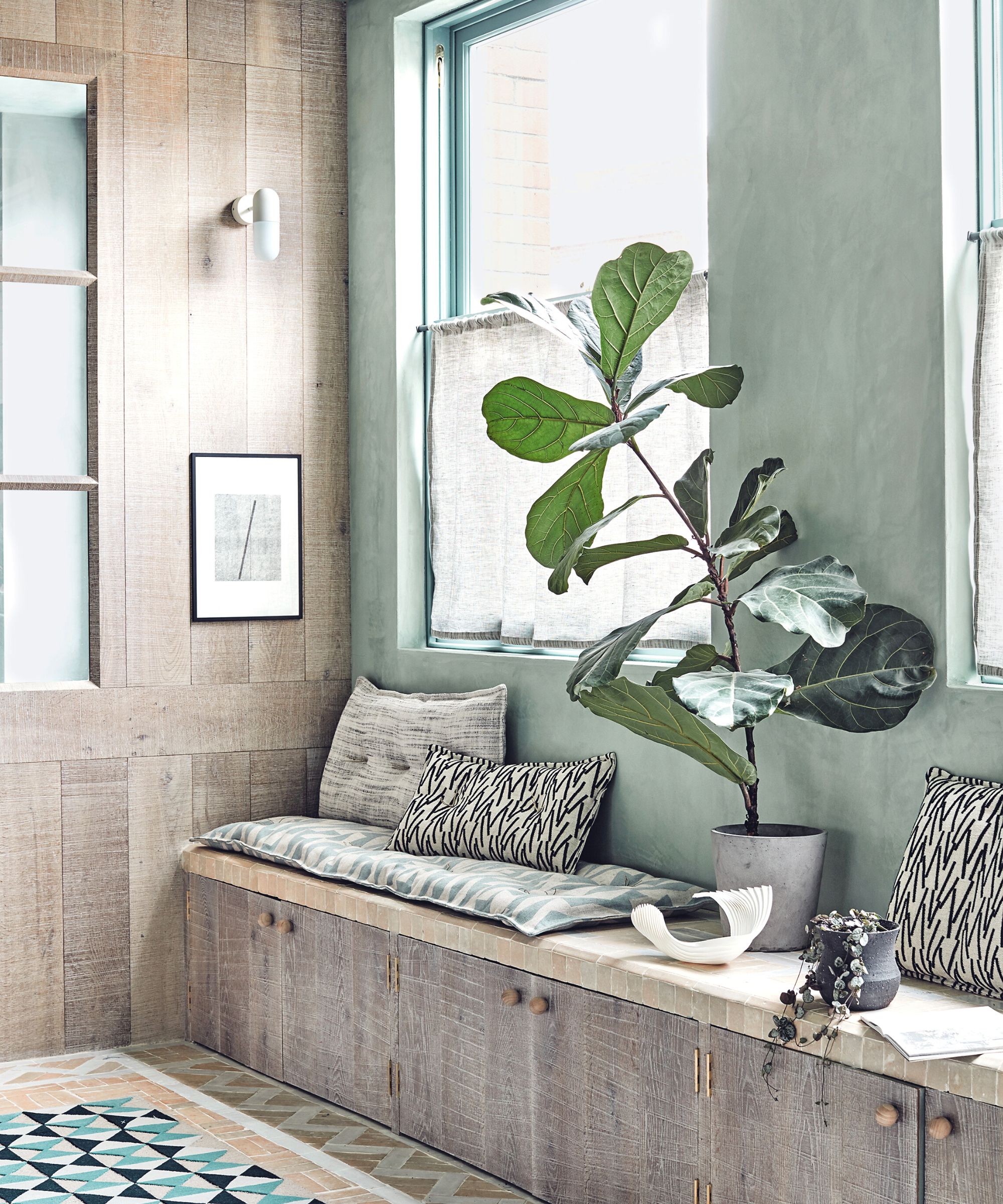
When moving your plants back to their original spot in your house, prep them for long-term pest control.
To make sure they can avoid common houseplant pests going forward, treat the plant with neem oil. Alternatively, spray the plant with horticultural oil or a hot pepper wax concentrate which can prevent common houseplant pests for up to two weeks per spray.
6. Trap or vacuum flying bugs

If fly repellent plants haven’t done the trick, tackle flying pests using yellow sticky fly traps. 'It’s also recommended to position a few of these sticky yellow traps in pots throughout your collection, as this will help alert you to any future infestations early on', Katie suggests.
For larger numbers of flying bugs, try using a fly spray and then vacuum up any dead bugs or remaining insects to get them under control before they spread even more.
What are the worse houseplant pests?
Whilst any pest on your houseplants are not ideal, certain pests can be worse than others. Kate points out that 'sadly, the majority are all rather troublesome, as they are small and slender, making them difficult to spot, they multiply quickly, and can crawl or fly, enabling them to infest your plant collection with ease.'
Aphids are one of the most common houseplant pests and can be a particular nuisance in your home. They survive by removing sap from the plant to help grow their colony which in turn produces honeydew secretions. If left unchecked this can lead to the growth of sooty mold.
It is important to remove houseplant pests such as aphids as soon as you spot them.
Sign up to the Homes & Gardens newsletter
Design expertise in your inbox – from inspiring decorating ideas and beautiful celebrity homes to practical gardening advice and shopping round-ups.

Chiana has been at Homes & Gardens for two years and is our resident 'queen' of non-toxic living. She spends most of her time producing content for the Solved section of the website, helping readers get the most out of their homes through clever decluttering, cleaning, and tidying tips. She was named one of Fixr's top home improvement journalists in 2024.
-
 Kim Kardashian turns her living room into a 'work of art' with just one furnishing – it's an unexpected masterclass in adding interest to a minimalist scheme
Kim Kardashian turns her living room into a 'work of art' with just one furnishing – it's an unexpected masterclass in adding interest to a minimalist schemeKim Kardashian's minimalist living room is nearly empty besides this one stylish piece – and it transforms the entire space into an elevated
By Sophie Edwards
-
 My closet is suddenly filled with baby blue – here's how I am bringing this on-trend spring shade into my home too
My closet is suddenly filled with baby blue – here's how I am bringing this on-trend spring shade into my home tooBaby blue features in so many of my spring outfits, so I was intrigued if this color I was clearly loving so much would work in my home too
By Sophia Pouget de St Victor